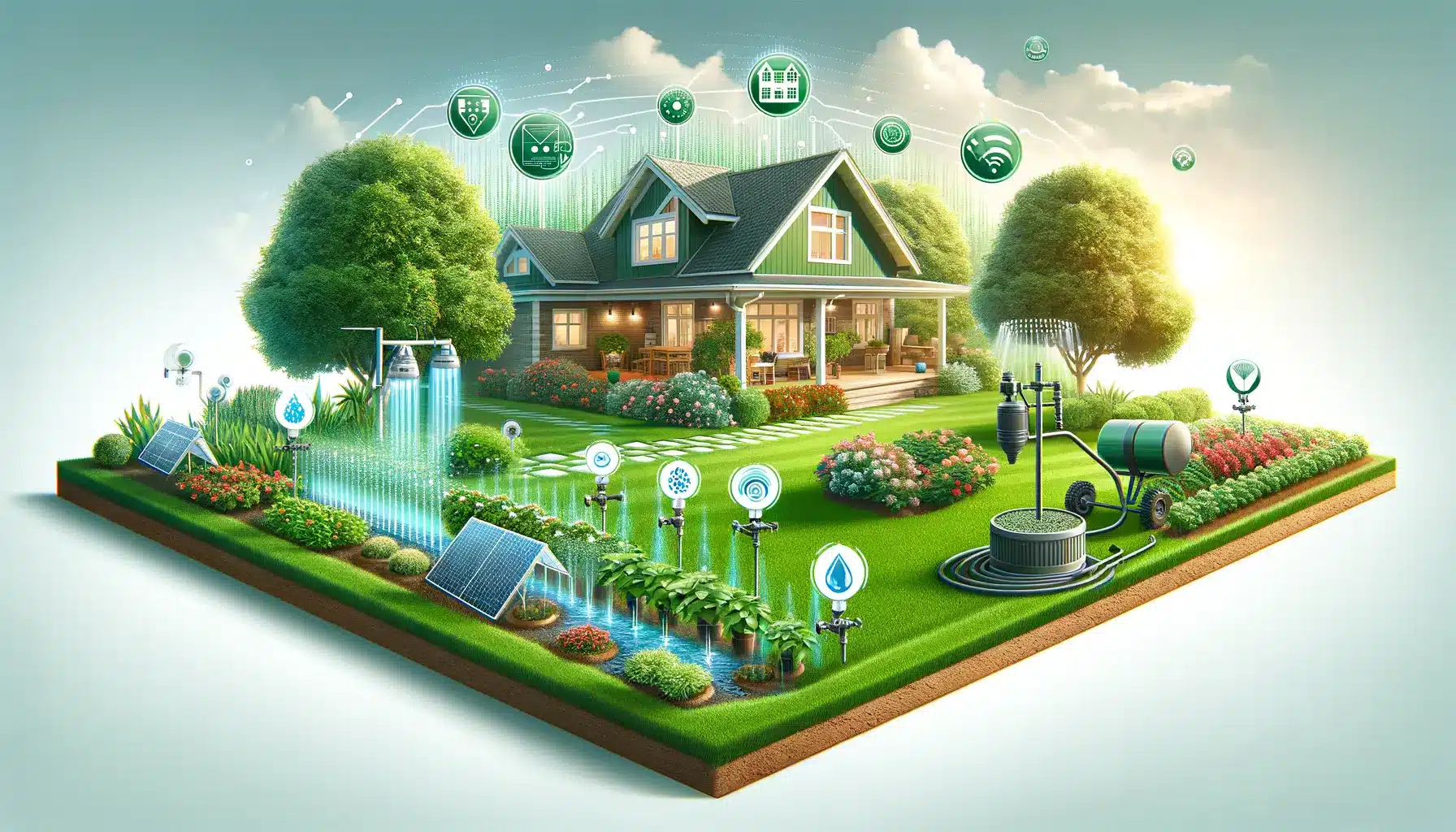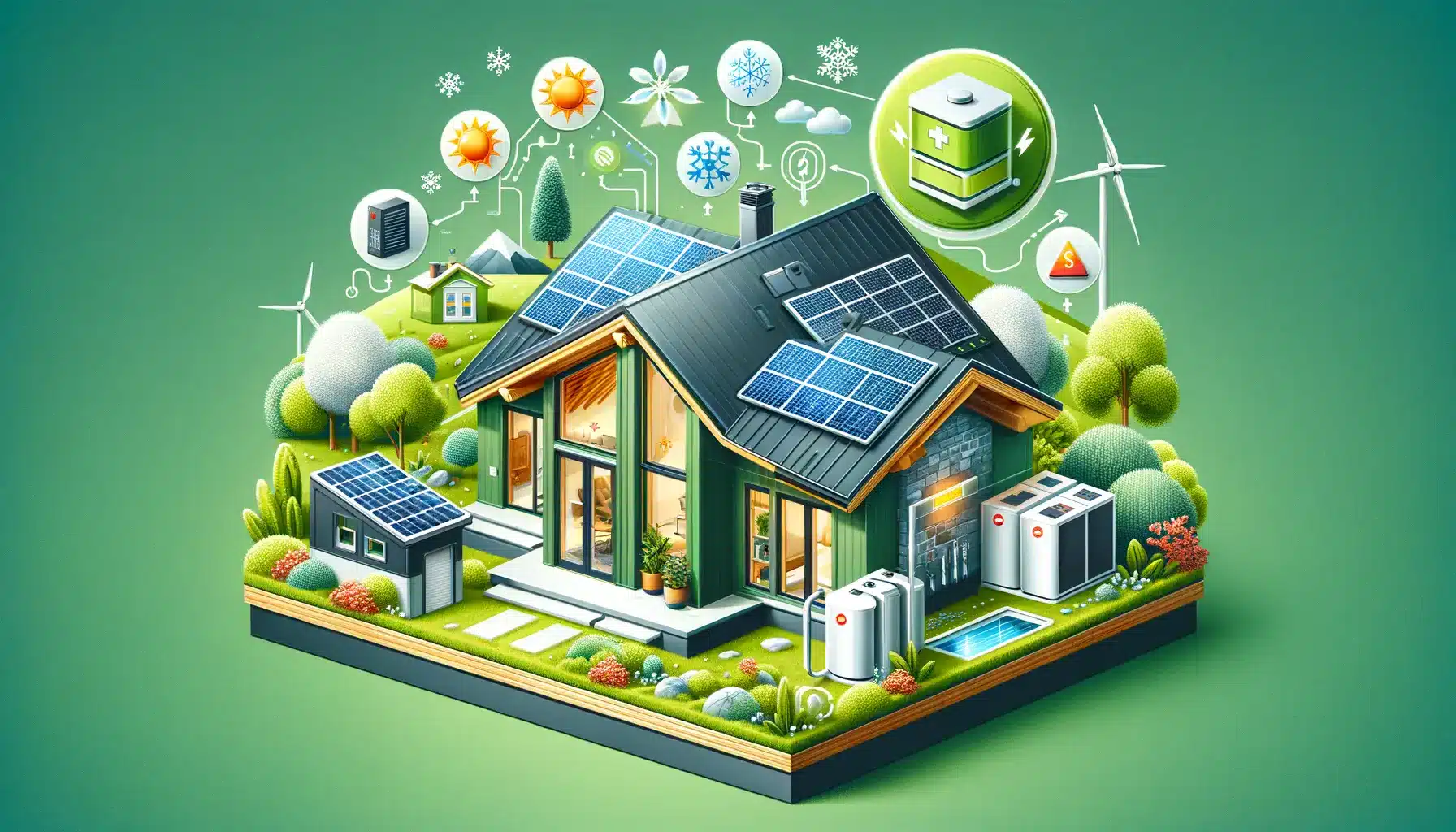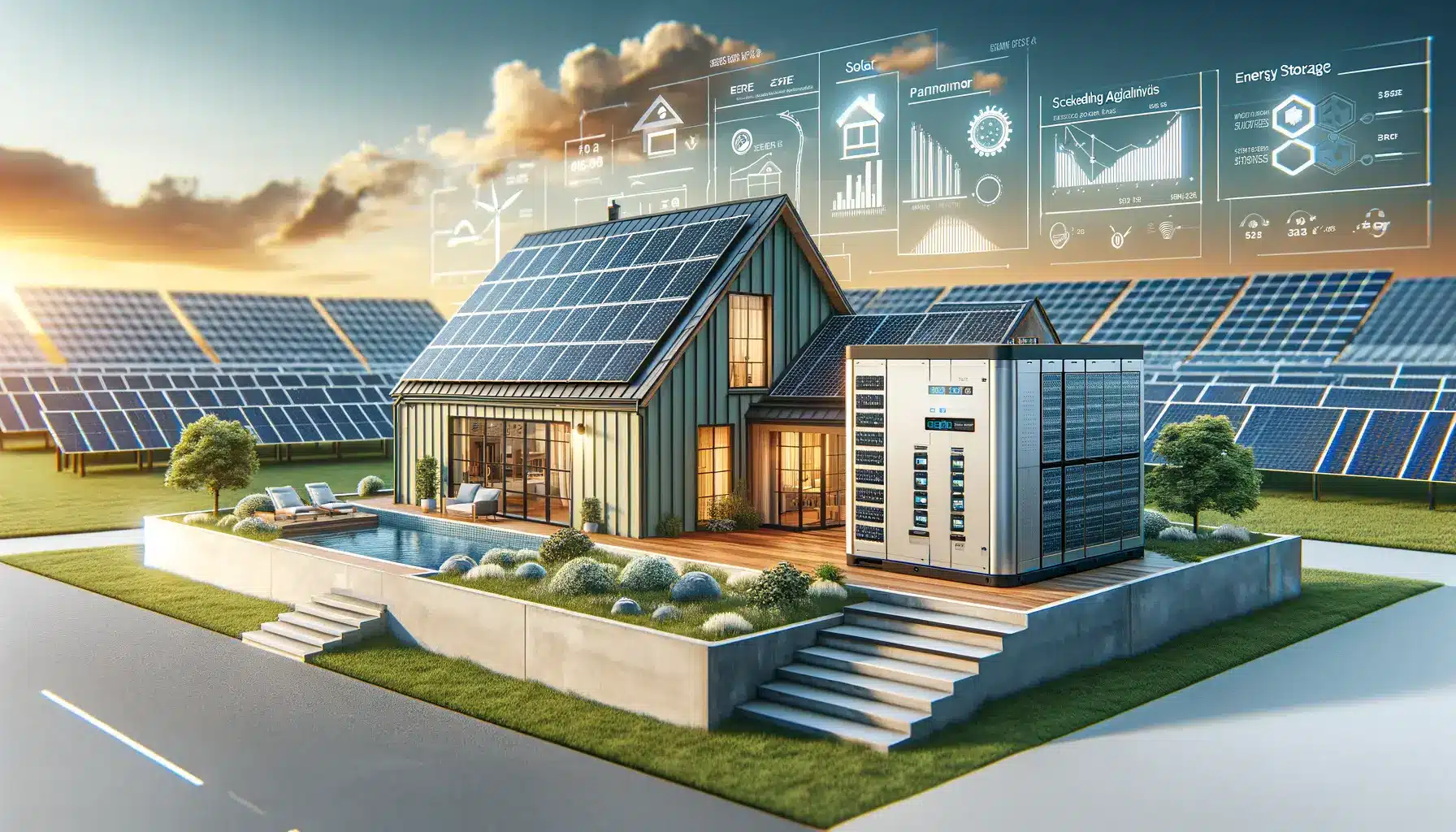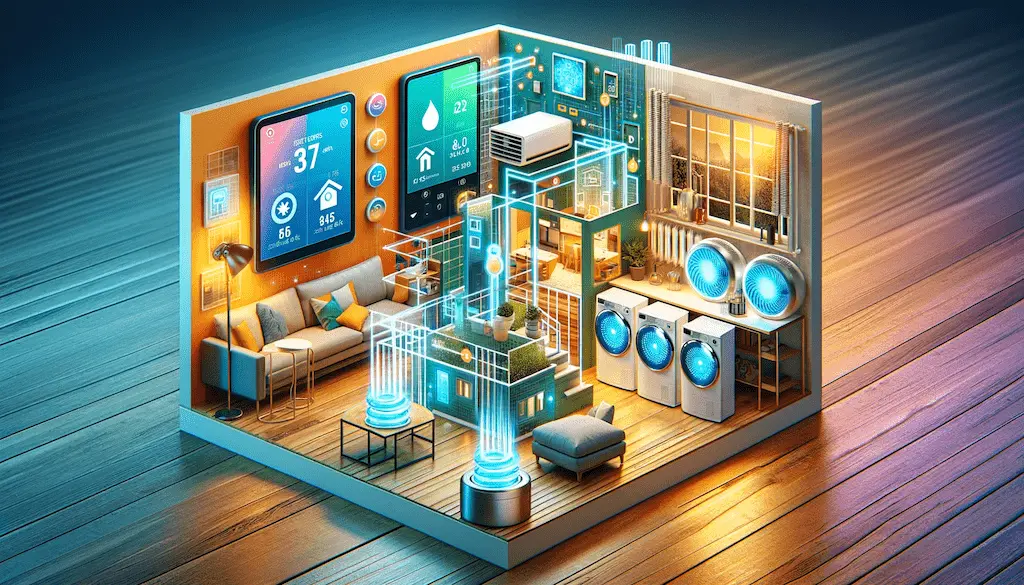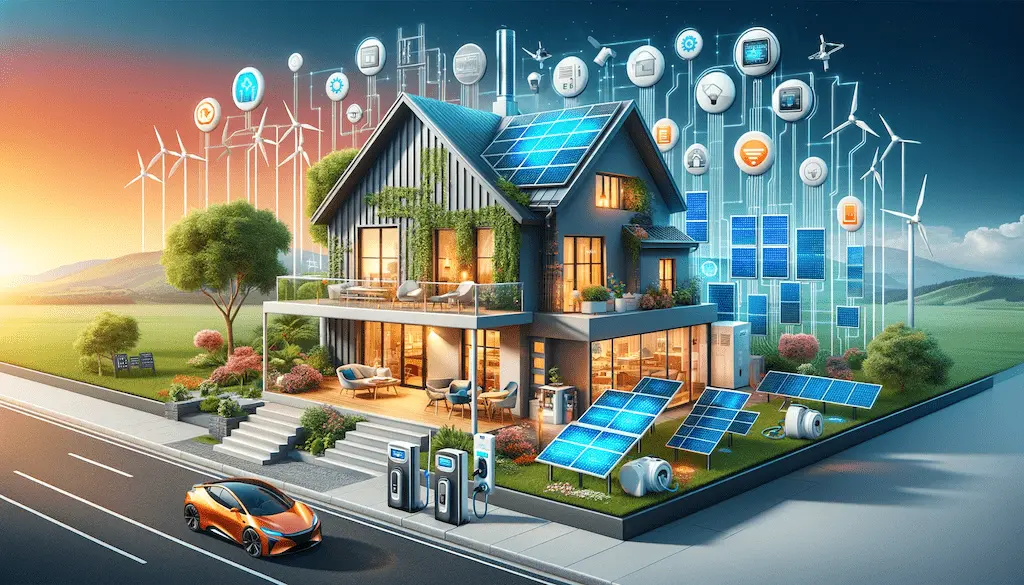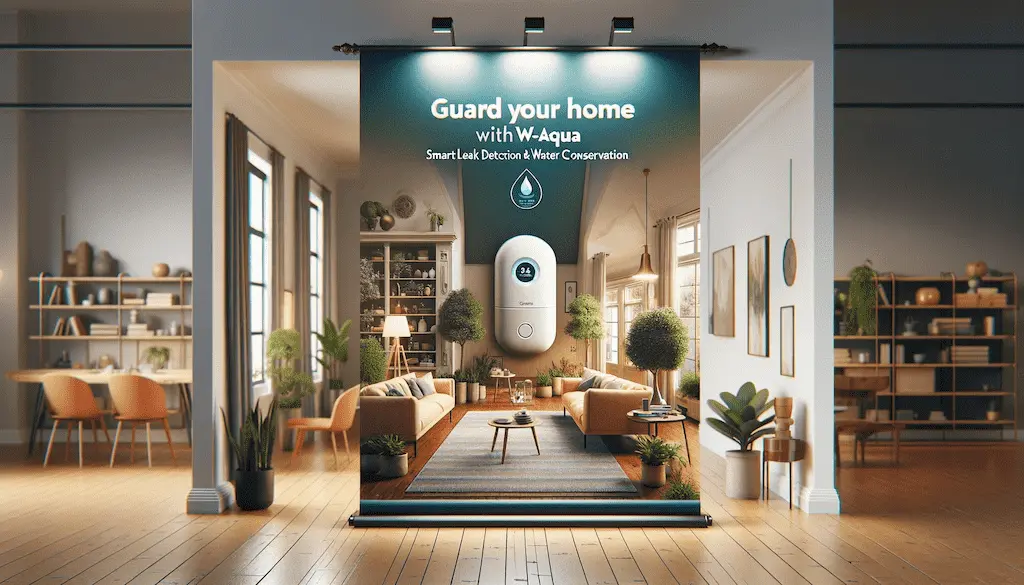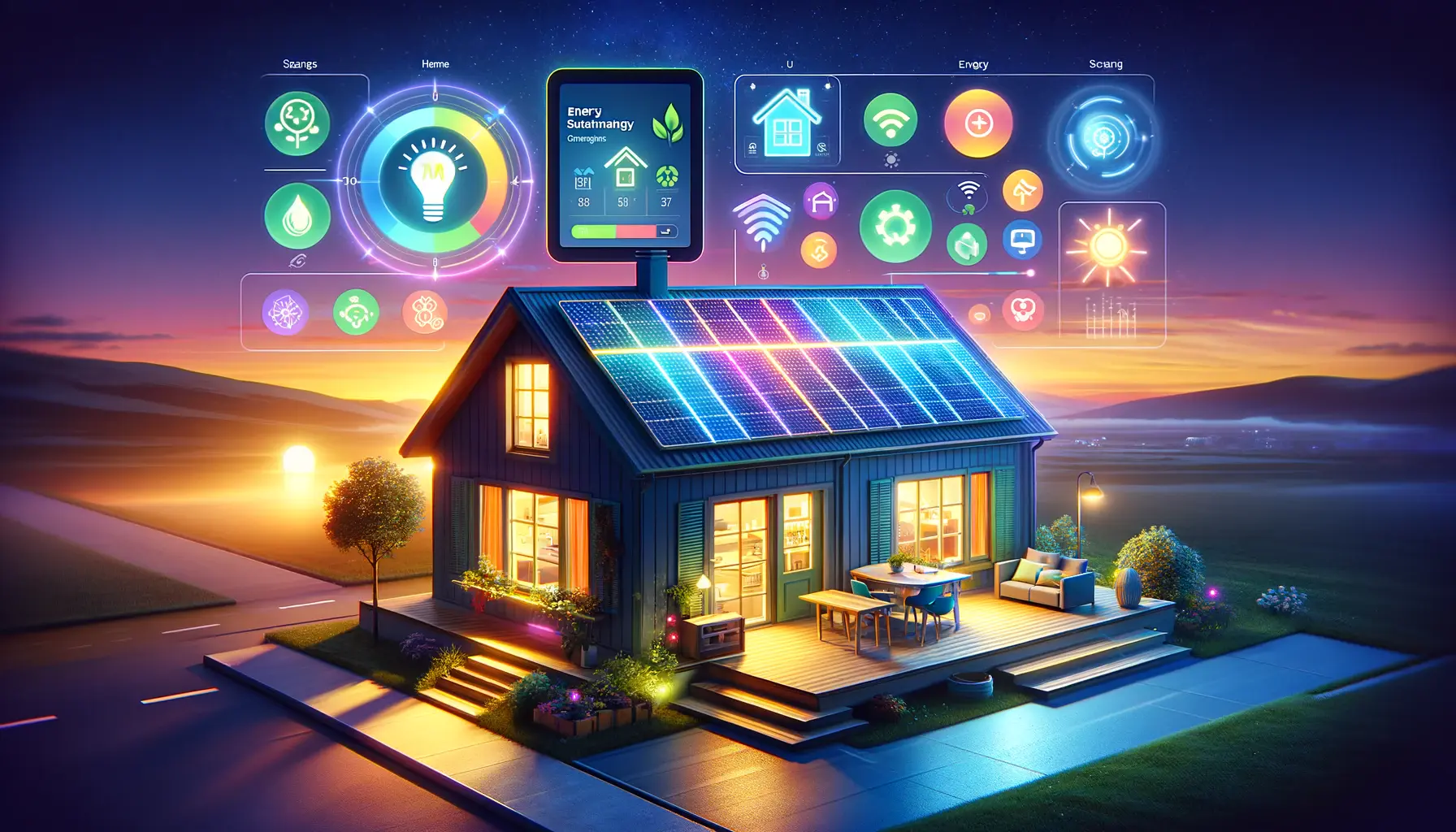
홈 에너지 관리 시스템(HEMS)에 대한 심층 분석
In the quest for a more sustainable and energy-efficient lifestyle, Home Energy Management Systems (HEMS) stand out as a beacon of innovation. These systems, which represent the convergence of technology and sustainability, are designed to optimize household energy consumption, thereby reducing energy bills, enhancing comfort, and contributing to environmental conservation.
HEMS 이해하기
At its core, a Home Energy Management System is an intelligent platform that monitors, controls, and optimizes the energy flow within a household. By integrating with various home appliances and energy systems, HEMS can provide homeowners with real-time data on energy usage and actionable insights to improve energy efficiency. This system leverages Internet of Things (IoT) technology, allowing for seamless communication between devices and enabling a smarter, more responsive energy management strategy.
전기 관리에서 HEMS의 역할
Electricity management is a critical component of home energy optimization. HEMS plays a pivotal role by:
- 전기 사용량 모니터링:By providing detailed insights into which appliances and systems are consuming the most energy, homeowners can identify areas for improvement.
- 에너지 절약 자동화:HEMS can automatically adjust lighting, appliances, and electronic devices based on predefined rules, presence detection, or energy tariffs, ensuring energy is used more efficiently.
- 수요 대응 참여:Some HEMS can integrate with utility demand response programs, automatically reducing energy usage during peak periods to benefit from lower rates or incentives.
난방 및 냉방 시스템과의 통합
Heating and cooling often account for a significant portion of a household’s energy consumption. HEMS enhances the efficiency of these systems through:
- 스마트 온도 조절기:These devices can learn a household’s heating and cooling preferences, adjusting the temperature automatically to optimize comfort and reduce waste.
- 구역별 난방 및 냉방:By managing where and when heating or cooling is needed, HEMS can minimize energy usage while maintaining optimal comfort throughout the home.
- 효율성 권장 사항:HEMS can suggest the best times to heat or cool the home based on weather forecasts, occupancy, and energy tariffs, further reducing unnecessary energy consumption.
가스 관리 및 안전
Natural gas management is another area where HEMS can make a significant impact. By monitoring gas usage and detecting leaks early, HEMS can help prevent accidents and ensure that gas appliances are operating efficiently. This not only enhances home safety but also contributes to energy conservation by ensuring that gas is used judiciously and appliances are maintained in good working order.
Home Energy Management Systems represent a revolutionary step forward in the way we consume and manage energy in our homes. By providing detailed insights into energy usage and offering tools for optimization, HEMS can lead to significant energy and cost savings. Moreover, by integrating with electricity, heating, cooling, and gas systems, HEMS ensures a holistic approach to energy management, enhancing comfort, safety, and environmental sustainability.
스마트 홈 기술과 홈 에너지 관리 시스템 통합
HEMS와 스마트 홈 시스템 연결
The fusion of Home Energy Management Systems (HEMS) with smart home technologies marks a pivotal shift towards creating more intelligent, efficient, and responsive living spaces. This integration harnesses the power of automation, IoT, and data analytics to transform how we interact with our homes, making energy management not just a task but a seamless part of daily life.
HEMS와 스마트 홈 기기의 시너지
Smart home devices, including smart thermostats, lighting, locks, and security cameras, can be integrated into HEMS to provide comprehensive control over a home’s environment and energy use. This synergy allows for:
- 자동 에너지 절약:Smart devices can be programmed to operate based on occupancy, time of day, or energy prices, reducing consumption without compromising comfort or convenience.
- 향상된 사용자 경험:Through a central HEMS interface, homeowners can monitor and control all connected devices, simplifying the management of home energy use.
- 예측 유지 관리:By analyzing data from smart appliances, HEMS can predict potential issues before they become serious problems, saving money on repairs and reducing downtime.
스마트 가전과 에너지 효율성
The role of smart appliances within a HEMS-centric home cannot be understated. Refrigerators, washers, dryers, and even ovens can now communicate with HEMS to operate at the most energy-efficient times, leveraging lower energy rates or solar production peaks. This not only optimizes their energy consumption but also extends to the broader goal of demand-side management, balancing the energy load and reducing strain on the grid.
재생 에너지 통합
A key component of modern HEMS is the ability to integrate with renewable energy sources, such as solar panels and wind turbines. Smart inverters and battery storage systems can be managed through HEMS to store excess energy generated during peak production times for use during higher demand periods. This enhances energy independence and contributes to a more resilient and sustainable energy ecosystem.
유틸리티 관리에 미치는 영향
The integration of HEMS with smart home technologies extends beyond individual homes, impacting how utilities manage demand and supply. By aggregating data from multiple households, utilities can gain insights into consumption patterns, leading to more efficient grid management and the potential for dynamic pricing models that incentivize energy-saving behaviors.
The convergence of Home Energy Management Systems and smart home technologies represents a significant advancement in our journey towards sustainable living. This integration not only optimizes energy use but also enhances the overall user experience, making our homes smarter, safer, and more responsive. As we continue to innovate and adopt these technologies, we move closer to realizing the full potential of a connected, energy-efficient world.
가정 에너지 관리 및 지속 가능성의 미래
As we advance into a future where sustainability and energy efficiency are not just valued but essential, the evolution of Home Energy Management Systems (HEMS) and their integration with smart home technologies play a pivotal role. This final part of our series looks ahead to the trends and innovations that will shape the future of home energy management, emphasizing the significant role homeowners play in driving sustainability.
홈 에너지 관리의 새로운 트렌드
The landscape of home energy management is rapidly evolving, driven by technological advancements and a growing emphasis on sustainability. Key trends include:
- AI 및 머신 러닝:The integration of artificial intelligence (AI) and machine learning with HEMS is set to revolutionize energy management. These technologies can predict energy needs, optimize usage patterns, and even negotiate energy rates in real-time, ensuring maximum efficiency.
- 에너지 거래를 위한 블록체인:Blockchain technology offers a secure and transparent way to manage energy transactions, enabling peer-to-peer energy trading among homeowners. This decentralizes energy distribution, allowing homeowners with renewable energy sources to sell excess power back to the grid or directly to neighbors.
- 사물인터넷과 커넥티드 홈:The Internet of Things (IoT) is at the heart of the smart home, and its role in energy management is expanding. Future HEMS will seamlessly connect all aspects of the home, from appliances to HVAC systems, providing unparalleled control and optimization capabilities.
에너지 저장 및 발전의 혁신
As renewable energy sources become more prevalent, innovations in energy storage and generation will become increasingly important. Advanced battery technologies, such as solid-state batteries, offer higher capacities and longer lifespans, enhancing the efficiency of solar and wind energy systems. Additionally, the development of microgrid systems enables communities to generate, store, and manage their own energy, reducing reliance on traditional power grids.
Homeowner’s Role in Shaping a Sustainable Future
Homeowners are at the forefront of the shift towards more sustainable energy practices. By adopting HEMS and smart home technologies, individuals can make a significant impact on energy conservation and sustainability. Actions that homeowners can take include:
- 재생 에너지에 투자하기:Installing solar panels or wind turbines not only reduces dependency on fossil fuels but also lowers energy bills.
- 에너지 효율 프로그램 참여:많은 공공 서비스 제공업체에서는 에너지 절약형 주택 개량 및 가전제품 업그레이드에 대한 인센티브를 제공합니다.
- 교육 및 옹호:Homeowners can lead by example, sharing their experiences and encouraging others to consider sustainable energy practices.
The future of home energy management is bright, with innovations in technology, renewable energy, and smart home integration paving the way for a more sustainable world. As we embrace these advancements, the role of homeowners becomes increasingly vital. Together, through informed choices and a commitment to sustainability, we can make a lasting impact on our planet’s future, ensuring a legacy of efficiency, resilience, and environmental stewardship.
